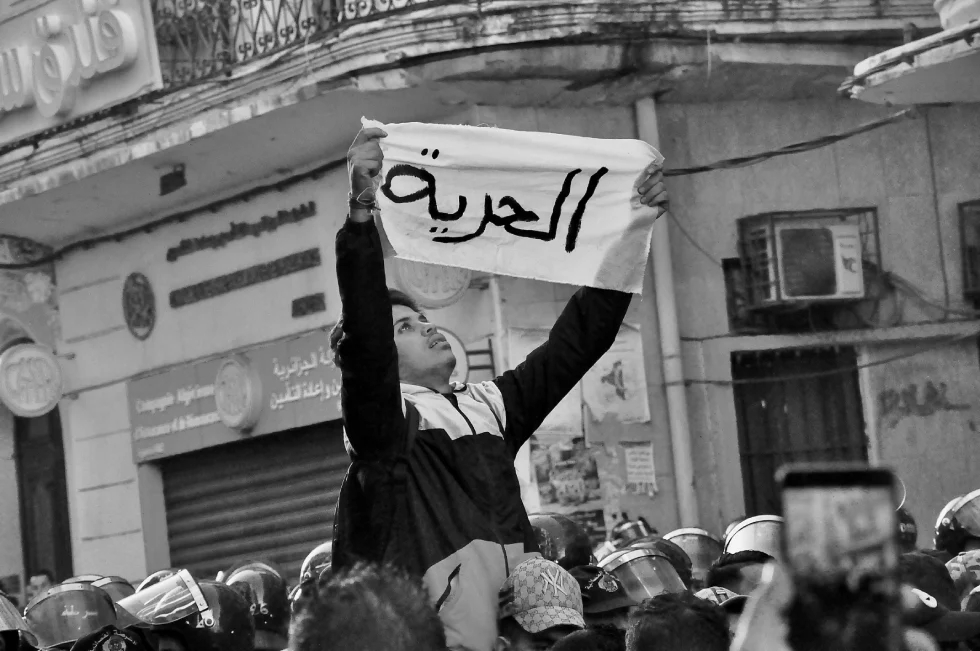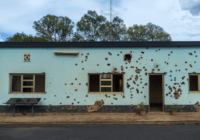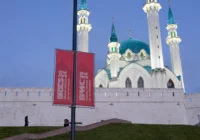In 2017, Emmanuel Macron admitted that French colonization was a “crime against humanity” while campaigning for the French presidency. However, Algeria expected France to officially apologize for these crimes. France has yet to do so. In fact, President Macron dared to question if Algeria would have existed if it had not been for the “French colonizers.”
In the Algerian War of Independence from 1954 to 1962, France committed unimaginable atrocities against Algerians in both Algeria and France. Algerians who cooperated with French forces were often captured and killed by their countrymen fighting for independence. Many escaped and sought asylum in France, where they were then put in camps and denied basic human rights and access to education. Those in Algeria fighting against the French were subject to horrific crimes such as systematic torture, which often resulted in deaths that were labeled as suicides.
In 1961, a year before Algeria gained independence, thousands of Algerians peacefully protested in Paris. In this event that became known as the Paris Massacre, French police killed over 100 of the demonstrators, shooting some and throwing others into the river. The French government covered up such atrocities by censoring the media and destroying archival evidence.
On September 20, 2021, President Macron condemned the “massacre of Algerians in Paris.” He issued an apology to the Algerians who fought alongside the French forces and to the families of those whom the Algerians captured as traitors and killed during the fight for independence.
Over the course of the conflict, the French colonization of Algeria is estimated to have cost up to 1.5 million Algerian lives. In 1962, an agreement was finally reached calling for a cease-fire, and Algeria gained independence after 132 years of French rule.
The shaping of Algeria
For the last five hundred years, Algeria has had a turbulent past. Around the turn of the seventh century, Arabs first conquered the region today known as Algeria. At the time, it was home to an indigenous group called the Berbers, known for their bravery and independence. However, that conquest was short-lived, and upon a second attempt, the Arabs were defeated by a Berber warrior queen named Kahinah.
In 705, the conquest finally succeeded. Arabs settled in the region and Berbers gradually became Muslims, adopting Arabic as their language. In 711, Berbers joined the Arabs in the conquest of Al-Andalus, present-day Spain and Portugal.
In 742, the Muslim Berbers rebelled against Arab rule and succeeded. By 907, much of North Africa came under the control of the Fatimids, a Shia sect. Over time, local rulers began to follow Sunni Islam and from that event to the 15th century, the area lived in turmoil.
Then, the Europeans arrived. In 1471, the colonization of Africa began with the Portuguese taking some of the Moroccan coastlines. In the early 16th century, Algeria came under the Ottoman Empire.
Although Algeria was under the Ottomans, that did not stop colonists from attacking it. The French invaded Algeria in 1682, the Dutch in 1715, the Spanish in 1775 and the US in 1815, to name a few. In 1830, the French conquered Algeria and it eventually became a French colony.
The colonization of Algeria
When the French invaded again in 1830, it took them nearly 20 years to conquer Algeria. The occupation was bloody and brutal, resulting in a substantial reduction in the local population. Some even consider the conquest genocide.
As the French struggled to gain control, they deliberately killed, raped, tortured, and buried unarmed civilians alive. Out of a population of three million, French forces caused the deaths of hundreds of thousands of Algerians, some occurring as the result of disease and famine. Around two million civilians were kept in prison camps. French officer Lucien de Montagnac, who was sent to assist in the colonization effort, wrote that the French must “annihilate all that will not crawl beneath our feet like dogs.”
The legacy of colonization in Algeria goes far beyond mass killings. The French stole religious endowments, restricted movement and confiscated fertile lands which they then gave to settlers. The French also plundered gold, iron, coal and other minerals, some of which are still in France.
Over the next century, France struggled to maintain control of Algeria. In 1911, a group of upper-class Muslims labeled themselves “Young Algerians” and demanded representation in the French National Assembly, which was duly declined. Not long after, when France began drafting Muslims to fight the Germans in WWI, many Algerian Muslims took up arms and resisted the law. In the following decades, tensions continued to boil over between Algerians and the French.
The Algerian War
By 1945, encouraged by the 1941 Atlantic Charter, Algerians demanded full independence. When Nazi Germany accepted defeat, Algerians gathered in large numbers to not only celebrate the fall of the Nazi regime but also to garner attention during the United Nations Conference in San Francisco. They wanted the delegates to know that Algeria existed and was ready to be an independent nation. In May, after the conference commenced, mass protests broke out in cities across Algeria.
Like all other mass protests, some violence occurred. The French reacted with aggression, and by the end of June had massacred several thousand Algerians. Many of those Algerians had fought side-by-side with France against Germany.
From their experience in 1945, Algerian patriots realized the only way to gain their freedom was through armed struggle. In 1954, unable to make progress, young Algerian patriots formed the Revolutionary Committee of Unity and Action (CRUA). They tried to unite the Algerians to fight the French and liberate their country. The CRUA created the National Liberation Front (FLN) to direct the Algerian War of Independence, which in turn created the National Liberation Army (ALN). So began the Algerian War.
Protests continued throughout the country, and as France suppressed uprisings, violence broke out. French brutality angered more peaceful civilians to join the revolutionaries, and the movement grew.
In 1958, France offered Algerian Muslims an opportunity to become equal with the French settlers. After so much bloodshed, it was too late, and revolutionaries rejected the offer and asked for independence. By March 1962, the French agreed to grant independence after the 132-year struggle.
Make wrongs right
Despite admitting their atrocities, the French maintain that they will not offer any “repentance or apologies.” To regain some respect, France could acknowledge, apologize and make reparations for the crimes against humanity they committed during colonial times. Importantly, reparation payments should go directly to victims and their descendants, not to the coffers of the Algerian government. To compensate for the ravages of colonization, the French could additionally allocate a sum for education and infrastructure.
Support should also be offered by organizations like the UN. Despite its mission to support peace and security, the UN has consistently failed to stop genocide, prevent ethnic cleansing or sufficiently support victims such as those in Algeria. Consider the ongoing example of the innocent Palestinian men, women and children being butchered daily by US-backed Israel. From Cambodia to Sudan, the UN has let down countries and communities across the world.
In the case of Algeria, the UN heard the cries but failed to provide justice. Even with denials and cover-ups, evidence of the French atrocities were overwhelming. To right these wrongs, a UN organized International Tribunal for Algeria (ITA) would be a good first start. Just as victims of the Holocaust have been compensated, Algerians must also receive compensation.
While no sum of money can ever erase the suffering of Algerians, reparations are an important step. First, victims get justice. Second, poor countries and victims get valuable financial support. Third, they set an important precedent for holding colonizers accountable. France must take responsibility and action to rectify the country’s dark history in Algeria.
[Emma Johnson edited this piece.]
The views expressed in this article are the author’s own and do not necessarily reflect Fair Observer’s editorial policy.
Support Fair Observer
We rely on your support for our independence, diversity and quality.
For more than 10 years, Fair Observer has been free, fair and independent. No billionaire owns us, no advertisers control us. We are a reader-supported nonprofit. Unlike many other publications, we keep our content free for readers regardless of where they live or whether they can afford to pay. We have no paywalls and no ads.
In the post-truth era of fake news, echo chambers and filter bubbles, we publish a plurality of perspectives from around the world. Anyone can publish with us, but everyone goes through a rigorous editorial process. So, you get fact-checked, well-reasoned content instead of noise.
We publish 2,500+ voices from 90+ countries. We also conduct education and training programs
on subjects ranging from digital media and journalism to writing and critical thinking. This
doesn’t come cheap. Servers, editors, trainers and web developers cost
money.
Please consider supporting us on a regular basis as a recurring donor or a
sustaining member.
Will you support FO’s journalism?
We rely on your support for our independence, diversity and quality.










Comment